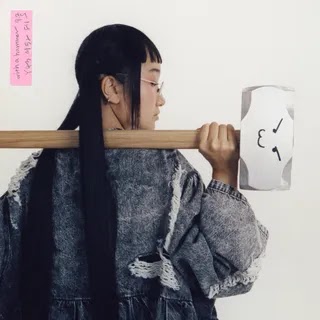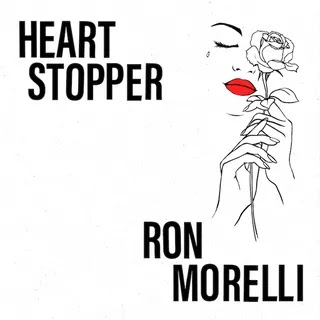Recorded over three long, inspired days in a studio north of Rio and newly remastered for its 15th anniversary, this is as solid a dub outing as has issued from anywhere beyond Jamaica.
Born in Bahia but long based in Rio de Janeiro, Lucas Santtana should have had both ears plenty full from those two centers of Brazilian culture. With his colloquial, imagistic Portuguese and references to all manner of regional and historical Brazilian styles—plus early career affiliations with Gilberto Gil, Caetano Veloso, Chico Science, and Arto Lindsay—Santtana’s music invites comparisons to tropicália’s heady fusions of local and foreign styles, manguebeat’s collisions of rock, rap, and maracatu in the 1990s, or yet another wave of bossa nova. But the textures and timbres of Santtana’s songs point to an even stronger site of influence: Jamaican reggae, especially the pulsing basslines, hazy echoes, and layered mixing techniques of dub. With the 15th anniversary reissue of 3 Sessions in a Greenhouse, remastered red-hot by German dub-techno wizard Stefan Betke (aka Pole), a pillar of Brazil’s 21st-century new wave digs into the roots of his sound, revealing a foundational reverence for dub reggae.
Recorded over three long, inspired days in a studio north of Rio, 3 Sessions in a Greenhouse is as solid a dub outing as has issued from Brazil, or just about anywhere beyond Jamaica’s shores, evincing a studied mastery of the musical and technical approaches developed by Lee “Scratch” Perry, King Tubby, and their peers and acolytes. This is not dub as cliché overload of fragment and reverb, but as attentive and creative engineering, on-the-spot arrangement, and improvised interplay. With the help of Recife’s Buguinha Dub on the boards, the album was recorded and mixed entirely live by Santtana and his touring group, Seleção Natural. The sessions produced a handful of stellar Santtana originals and several “dubs,” or covers performed as live dub versions—a soundcheck practice the band developed together and decided to lean into. We hear no overdubs, though occasional banter between tracks evokes the warm studio ambience. The liveness and lightness of the sessions shines through: not too serious, not too rigid, yet still rigorous. It’s dub as practice, process, and style.
Santtana’s embrace of dub as a mixing method accommodates his incorporation of rock, Afrobeat, samba, and so on. But he and the band also embrace dub as a musical style: bass enjoys pride of place with drums a close second, while spiky guitars, harmonized brass, and voice take turns in the foreground, echoing into muted silence at the stroke of a fader. Album opener “Awô Dub” is a prime example of this tendency, an unhurried instrumental led by a bubbling bassline, Nyabinghi-adjacent percussion, horns that duck in and out of the mix, and judicious use of effects to support the shifting arrangement. “Lycra-Limão,” on the other hand, applies dub aesthetics—especially deep bass, echo, and use of space—to an upbeat ska number that could get suspendered kids dancing in any number of cities and eras.
For all the Jamaican touches, Brazilian accents emerge as both subtle and explicit nods to local traditions and icons. On “Tijolo a Tijolo, Dinheiro a Dinheiro,” a high-pitched guitar evokes the cavaquinho, Brazil’s signature four-string lute, and the drummer’s rimshots call back to bossa nova even as the beat leans more toward the rolling grooves of Tony Allen. Tropicália pioneer and alt-MBP stalwart Tom Zé stops by to sing on a dub cover of his own “Ogodô Ano 2000.” As on the original, a misleadingly Zeppelin-esque riff is reconfigured by Zé’s snaky, surprising rhythms—led here by the bass, of course—but then a soupier texture swirls in: Dueling guitars and dense percussion span the stereo field as a cowbell pans from left to right, and a chording instrument with no attack echoes on offbeats while Zé’s own voice bounces around the room.
Perhaps more than any other track, “Pela Orla Dos Velhos Tempos” blurs lines between copy and original, import and indigenous. The opening TR-808 beat may suggest early funk carioca—or the stateside electrofunk and Miami bass that inspired it—but the primary reference for this “dub” is a manguebeat classic, a Nação Zumbi song reanimated here by the group’s own Gilmar Bola 8, who sings and raps “old school” style (“antigamente,” as the chorus goes) for a track about the good ol’ days. The strikingly bare electronic percussion is soon submerged in a larger ensemble sound that never stops accruing and shedding layers. The song winds down with whispers over 808 cowbells and a single pummeling bass note; the final word falls to the hand drums, calling out to Rio, Salvador, Kingston, Miami, Havana, and more.
While clearly in the spirit of the sessions, one intertextual experiment falls flat. “A Natureza Espera” begins as a promising, meditative piece of reggae em português but goes off the rails with a lengthy English recitation of the opening of Virginia Woolf’s The Waves. Maybe it sounded better in a second language, or in that inspired studio atmosphere, but what might’ve seemed like a trippy complement turns into a dreary detour.
The tropicália movement of the ’60s and ’70s and Recife’s manguebeat scene of the ’90s are clear touchstones here. But while Santtana’s music has much in common with kindred attempts to fuse Brazilian folk and pop styles with rock, rap, and everything else, 3 Sessions in a Greenhouse illustrates how his songwriting is less motivated by the idea of fusion per se than by the expressive capacities of a familiar but putatively foreign musical language like dub. In that sense, the choice of Stefan Betke to remaster the album—i.e., to remix it at the level of foregrounded frequencies—is a fitting one: In dub tradition, Betke goes bold, showing his hand while reshaping the sound, and highlighting how Berlin’s regard for and distinctive take on dub parallel those of Brazil. In both we hear mutual intelligibility, but also many wonderful things to be found in translation.












%20Music%20Album%20Reviews.webp)



0 comments:
Post a Comment